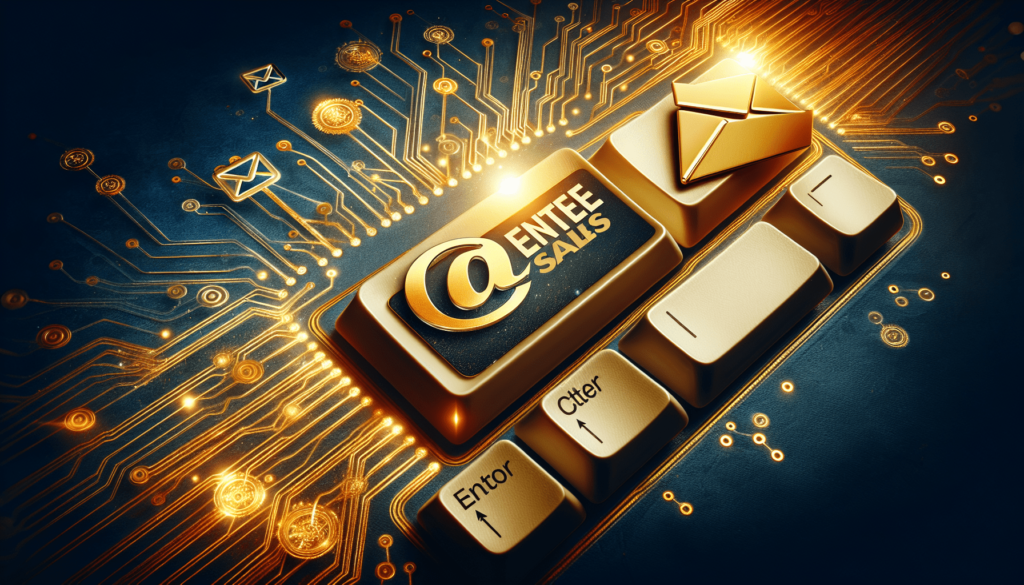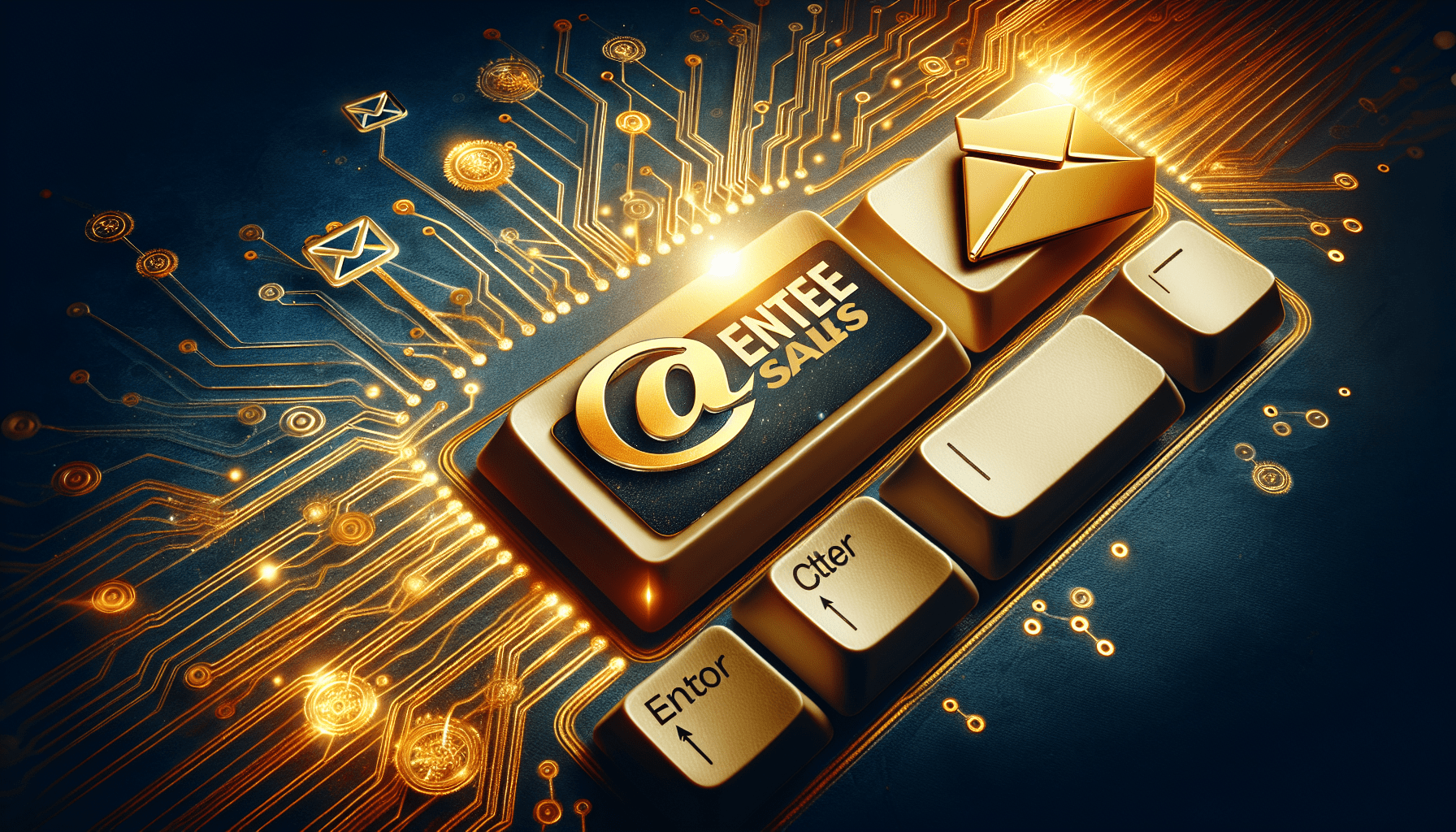Imagine being able to close real estate deals online, without ever leaving the comfort of your own home. With the power of email marketing, this dream is becoming a reality for many real estate agents. In this article, we will explore how email marketing is transforming the way real estate agents connect with potential clients, build relationships, and ultimately, close deals. From cultivating personalized email campaigns to leveraging automation tools, discover the secrets to success in the digital realm of real estate. Get ready to embrace the future of real estate marketing and unlock an endless world of opportunities right at your fingertips.

Benefits of Email Marketing for Real Estate Agents
Email marketing has become an indispensable tool for real estate agents in today’s digital age. It offers a multitude of benefits that can help agents increase their leads, save costs, reach a targeted audience, and build strong relationships with clients. By leveraging the power of email marketing, agents can effectively grow their business and close deals online.
Increase in Leads
One of the key benefits of email marketing is the ability to generate a significant increase in leads. By building an email list of prospective clients and sending targeted emails, agents can capture the attention of potential buyers and sellers. Through enticing content and compelling calls-to-action, email campaigns can drive individuals to take action and reach out to the agent. With a carefully crafted email strategy, agents can experience a significant boost in their lead generation efforts.
Cost-effective
Compared to traditional marketing methods like print advertisements or direct mailers, email marketing is highly cost-effective. With minimal expenses for designing and sending emails, real estate agents can reach a large audience at a fraction of the cost. Additionally, email marketing allows for automation, saving valuable time and resources. By cutting down on expenses, agents can allocate their budget towards other important aspects of their business.
Targeted Audience
One of the greatest advantages of email marketing is the ability to reach a highly targeted audience. Through segmenting and personalized email campaigns, agents can customize their message to specific groups of clients. By tailoring content to the needs and preferences of each individual, agents can make a more significant impact and increase their chances of closing deals. Email marketing allows agents to connect with their audience on a more personal level, fostering trust and loyalty.
Building Relationships
Email marketing serves as a powerful tool for agents to build and nurture relationships with clients. By consistently staying in touch through email campaigns, agents can provide valuable information, share market updates, and establish themselves as trusted advisors. The ability to communicate on a regular basis helps to maintain top-of-mind awareness among clients, increasing the likelihood of referrals and repeat business. Email marketing allows agents to showcase their expertise and create lasting connections with their audience.
Building an Email List
To embark on a successful email marketing campaign, real estate agents need to build a robust email list. This involves collecting the contact information of potential clients who have expressed interest in their services. Below are some effective strategies for growing an email list:
Creating an Opt-in Form
An opt-in form is a form on an agent’s website or landing page where visitors can voluntarily provide their contact information to receive updates or newsletters. By optimizing the design and placement of the form, agents can entice visitors to subscribe. It is essential to keep the form simple, concise, and clear, ensuring that visitors know what they are signing up for and what they can expect to receive.
Offering Incentives
To incentivize visitors to subscribe to the email list, agents can offer valuable content or special offers. This could include exclusive access to property listings, market reports, or informative guides for buyers and sellers. By providing unique and desirable content, agents can entice potential clients to willingly share their contact information.
Utilizing Social Media
Social media platforms are a powerful tool for promoting an agent’s business and growing their email list. By strategically placing opt-in forms or call-to-action buttons on their social media profiles or within their posts, agents can capture the attention of their followers and encourage them to join their email list. Additionally, hosting contests or giveaways on social media with email subscription as a requirement can help expand the agent’s reach and attract new subscribers.
Segmenting Your Email List
Once an email list is established, it is crucial to segment the contacts into specific groups based on various criteria. This allows agents to tailor their email content and better meet the needs of their audience. The following are different types of segmentation agents can utilize:
Demographic Segmentation
Demographic segmentation involves categorizing contacts based on demographic factors such as age, gender, location, or income level. By understanding the demographics of their audience, agents can create targeted content that resonates with a specific group. For example, agents can send emails featuring luxury properties to high-income individuals or provide tips for first-time homebuyers to contacts in a younger age bracket.
Behavioral Segmentation
Behavioral segmentation categorizes contacts based on their actions, such as engagement with previous emails, website visits, or property search history. By monitoring the behavior of their contacts, agents can send relevant and timely emails that align with their interests and preferences. For instance, agents can send personalized property recommendations to contacts who have shown interest in similar listings.
Lead Source Segmentation
Lead source segmentation involves categorizing contacts based on how they were acquired, such as through a website form, social media, or a referral. By tracking the lead source of their contacts, agents can gain insights into which marketing channels are most effective in generating quality leads. This valuable information can be used to optimize marketing strategies and improve lead generation efforts.
Crafting Compelling Emails
Crafting compelling emails is essential to capture the attention of recipients and encourage them to take action. Here are some key elements to consider when creating impactful email content:
Subject Lines
The subject line is the first impression of the email and plays a crucial role in determining whether it gets opened or ignored. Agents should aim to create subject lines that are concise, attention-grabbing, and personalized. Including the recipient’s name or referencing a specific offer can significantly increase open rates. It is important to strike a balance between being informative and creating a sense of urgency or curiosity.
Personalization
Personalizing emails goes beyond addressing the recipient by name. It involves tailoring the content of the email to the recipient’s specific interests, needs, or previous interactions. By incorporating relevant information, such as a contact’s preferred property types or recent search history, agents can create a more personalized experience. Taking the time to understand and cater to individual preferences can greatly increase engagement and response rates.
Compelling Content
The content of the email should be informative, engaging, and valuable to the recipients. Agents can provide market updates, share success stories, offer tips and advice, or showcase new listings. It is important to strike a balance between promotional and educational content, ensuring that the email provides genuine value to the reader. Including visually appealing images and infographics can also help capture attention and convey information effectively.
Clear Call-to-Action
Every email should have a clear and compelling call-to-action (CTA) that directs recipients towards the desired action, such as contacting the agent, scheduling a showing, or signing up for a newsletter. The CTA should be prominently displayed, visually appealing, and accompanied by persuasive copy. Agents should make it as easy as possible for recipients to take the desired next step, whether it be linking to a contact form, a property listing, or a landing page.

Automating Email Campaigns
To streamline the email marketing process and ensure consistent communication with contacts, agents can leverage automation tools. By setting up automated email campaigns, agents can deliver timely and personalized content without manually sending each email. Here are some popular automated email campaigns for real estate agents:
Welcome Series
A welcome series is a sequence of emails sent to new contacts who have recently joined the agent’s email list. These emails serve to introduce the agent, provide useful information or resources, and set the tone for future communication. A well-crafted welcome series helps to establish a positive first impression and build rapport with new contacts.
Drip Campaigns
Drip campaigns are a series of scheduled emails that are sent to contacts over a specific period. These campaigns nurture leads by providing a steady stream of relevant and valuable content. By automating the delivery of drip campaigns, agents can stay top-of-mind with contacts, provide ongoing updates, and gently guide them towards taking action.
Scheduled Newsletters
Newsletters are a popular form of email communication that agents can utilize to share industry news, market insights, informative articles, or property listings. By scheduling newsletters to be sent regularly, agents can provide consistent value to their subscribers and establish themselves as trusted sources of information. Automated newsletters ensure that contacts receive updates without the need for manual intervention.
Using Visual Content in Emails
Visual content has proven to be highly effective in capturing and retaining the attention of email recipients. Real estate agents can leverage various visual elements within their emails to make a lasting impression. Here are some examples:
High-Quality Photos
Including high-quality photos of properties in emails is an excellent way to showcase listings and pique the interest of potential buyers. Agents should invest in professional photography to capture the best features of each property. By including appealing images in emails, agents can provide a visual experience to recipients and encourage them to explore further.
Virtual Tours
Virtual tours are an innovative and immersive way to bring properties to life for recipients. By incorporating virtual tour links or embedding interactive 3D tours directly into emails, agents can provide a dynamic and engaging experience. Virtual tours allow potential buyers to explore properties from the comfort of their own homes, saving time and enabling them to narrow down their options.
Videos
Videos are highly engaging and can convey information effectively in a short amount of time. Agents can include video walkthroughs of properties, interviews with satisfied clients, or educational videos about the buying or selling process. Videos create a personal connection with recipients and can significantly increase engagement rates.
Integrating Email with CRM Systems
Integrating email marketing with a Customer Relationship Management (CRM) system can greatly enhance an agent’s ability to manage and nurture leads effectively. Here are some ways in which email and CRM integration can benefit real estate agents:
Syncing Contact Information
By integrating email with a CRM system, agents can automatically sync contact information between the two platforms. This eliminates the need for manual data entry and ensures that contact records are always up-to-date. Agents can easily view a contact’s email history, preferences, and interactions, allowing for a more personalized and targeted email marketing approach.
Tracking Email Interactions
CRM systems equipped with email tracking capabilities enable agents to monitor recipient interactions with their emails. Agents can track open rates, click-through rates, and engagement metrics to gain insights into the effectiveness of their email campaigns. This data helps agents identify which contacts are most active and engaged, allowing them to prioritize follow-ups and tailor future communication accordingly.
Lead Nurturing
By integrating email marketing with a CRM system, agents can implement lead nurturing strategies more efficiently. Agents can set up automated workflows that trigger specific email sequences based on a contact’s behavior or stage in the buying or selling process. This ensures that leads receive timely and relevant information, fostering stronger relationships and increasing the likelihood of conversion.
Monitoring and Analyzing Email Campaigns
Analyzing the performance of email campaigns is crucial for real estate agents to measure their success and make informed decisions for future strategies. Here are some important metrics to monitor:
Open Rates
Open rates indicate the percentage of recipients who opened an email. By tracking open rates, agents can gauge the effectiveness of their subject lines and overall email engagement. A high open rate suggests that the subject lines are enticing and engaging, while a low open rate may indicate the need for improvement in email content or targeting.
Click-through Rates
Click-through rates measure the percentage of recipients who clicked on a link within the email. Agents can track the click-through rates of various links, such as property listings, contact forms, or blog articles. This data helps agents determine the level of interest and engagement among recipients and allows for targeted follow-ups based on their preferences.
Conversion Rates
Conversion rates track the percentage of recipients who completed a desired action, such as scheduling a showing, submitting a contact form, or making a purchase. By analyzing conversion rates, agents can assess the effectiveness of their email campaigns in driving meaningful actions. This data helps identify opportunities for improvement and optimization.
A/B Testing
A/B testing involves sending two versions of an email to different segments of recipients to determine which performs better. It allows agents to experiment with different subject lines, content, layouts, or calls-to-action, and gather data to inform future email strategies. A/B testing helps agents optimize their email campaigns and improve their overall performance.
Avoiding Spam Filters
To ensure that emails reach the intended recipients’ inboxes, real estate agents need to avoid triggering spam filters. Here are some important practices to follow:
Maintaining a Clean Email List
Regularly cleaning and updating the email list is essential to avoid sending emails to inactive or non-existent email addresses. Sending emails to a high number of bounce or unsubscribed emails can harm the sender’s reputation and increase the chances of being flagged as spam. Agents should regularly remove invalid email addresses and allow recipients to easily unsubscribe from their emails.
Avoiding Trigger Words
Certain words or phrases can raise red flags for spam filters and increase the likelihood of emails being marked as spam. Real estate agents should be cautious when using common trigger words related to promotions, offers, or financial incentives. It is important to craft email content carefully to ensure it is not perceived as spammy or overly sales-oriented.
Using Trusted Email Service Providers
Choosing a reputable email service provider (ESP) is crucial to maintain email deliverability and avoid being flagged as spam. Trusted ESPs have established relationships with internet service providers (ISPs) and implement best practices to ensure that emails are delivered successfully. By using a reputable ESP, agents can have confidence in the deliverability of their emails and focus on building strong relationships with their audience.
Tips for Effective Email Marketing
To maximize the effectiveness of email marketing strategies, real estate agents should keep the following tips in mind:
Consistency
Consistency in email marketing is key to maintaining engagement and building trust with recipients. Agents should establish a regular communication schedule, whether it be weekly, bi-weekly, or monthly, and stick to it. This ensures that contacts receive a steady flow of valuable information and updates without overwhelming them.
Automation
Leveraging automation tools can save time and ensure that email campaigns are delivered consistently. By setting up automated workflows, agents can nurture leads and deliver personalized content based on predetermined triggers. Automation streamlines the email marketing process and allows agents to focus on other important aspects of their business.
Personalization
Personalizing email content is essential to make recipients feel valued and understood. By incorporating personal details or referencing previous interactions, agents can create a more meaningful connection with their audience. Personalization goes beyond addressing recipients by name and involves tailoring content based on their preferences, interests, or stage in the buying or selling process.
Testing and Refining
Constant testing and refinement are crucial for optimizing email marketing efforts. Real estate agents should regularly test different subject lines, email templates, content formats, or calls-to-action to identify what resonates most with their audience. By analyzing data and gathering feedback, agents can make informed decisions and continuously improve their email campaigns.
In conclusion, email marketing has become an invaluable tool for real estate agents, offering numerous benefits such as increased leads, cost-effectiveness, targeting capabilities, and relationship building. By building an email list, segmenting contacts, crafting compelling emails, and automating campaigns, agents can harness the power of email marketing to connect with their audience, showcase properties, and close deals. By integrating email marketing with CRM systems, monitoring campaign performance, avoiding spam filters, and following best practices, agents can maximize the effectiveness of their email marketing efforts. With consistency, personalization, and continuous testing, real estate agents can achieve success and build lasting connections through email marketing.










